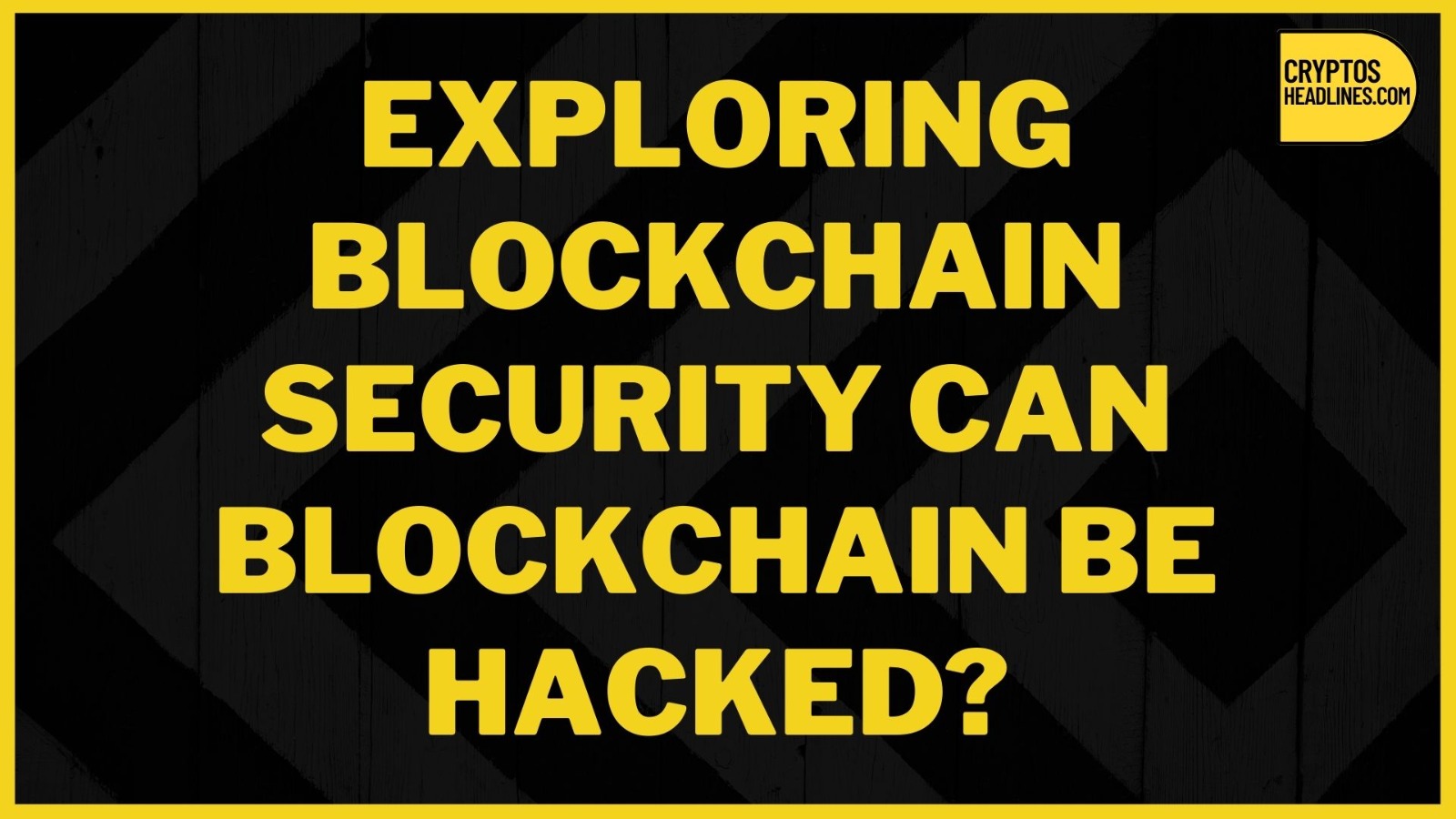In the world of technology and finance, blockchain has emerged as a disruptive innovation that promises to revolutionize industries and reshape our understanding of trust and security. However, amidst the hype and excitement surrounding blockchain, a question that often arises is: Can blockchain be hacked? In this blog post, we will delve into the intricacies of blockchain security and explore whether blockchain can truly be hacked or not.
Blockchain, the distributed ledger technology that underpins cryptocurrencies like Bitcoin, is renowned for its robustness and security features. It uses complex cryptographic algorithms, consensus mechanisms, and decentralization to ensure that transactions are secure and tamper-proof.
Each block in a blockchain contains a record of multiple transactions, and once a block is added to the chain, it cannot be altered without the consensus of the network.
The decentralized nature of blockchain makes it difficult for any single entity to gain control over the network, making it resistant to traditional cyber attacks like DDoS (Distributed Denial of Service) attacks, where multiple systems overwhelm a network with traffic to disrupt its operation.
Additionally, the consensus mechanism used in blockchain, such as Proof of Work (PoW) and Proof of Stake (PoS), ensures that the majority of the network participants agree on the validity of transactions, making it highly secure.
However, despite its inherent security features, blockchain is not invulnerable to all types of attacks. Let’s explore some of the potential vulnerabilities and attack vectors that can be exploited by malicious actors.
51% Attack
One of the most commonly discussed attacks on blockchain is the 51% attack. In a PoW-based blockchain, a miner or a group of miners with more than 50% of the total hash power can potentially control the network and manipulate transactions.
This could allow them to double-spend coins or prevent new transactions from being confirmed. However, executing a 51% attack on a large and established blockchain network like Bitcoin is highly challenging and resource-intensive, requiring an immense amount of computing power and energy, making it economically infeasible for most attackers.
Smart Contract Vulnerabilities
Blockchain platforms like Ethereum allow the execution of smart contracts, which are self-executing contracts with the terms of the agreement directly written into code. However, smart contracts can have vulnerabilities if not coded properly, leading to potential exploits.
For example, in 2016, the Decentralized Autonomous Organization (DAO) on the Ethereum blockchain was hacked due to a vulnerability in its smart contract code, resulting in the loss of millions of dollars’ worth of cryptocurrency. This incident highlighted the importance of thorough auditing and testing of smart contracts to ensure their security.
Social Engineering Attacks
Blockchain networks involve human participants who can be vulnerable to social engineering attacks. For example, attackers could use phishing techniques to trick users into revealing their private keys, which are essential for accessing and managing their blockchain wallets.
Once the private keys are compromised, the attackers can gain unauthorized access to the wallets and steal the cryptocurrencies stored in them. Therefore, user education and awareness about best practices for securing private keys are crucial in preventing social engineering attacks.
Software Vulnerabilities
Like any other software, blockchain platforms and their associated applications can have vulnerabilities that could be exploited by hackers. For example, bugs or flaws in the code of a blockchain client or wallet software could potentially allow an attacker to manipulate transactions, gain unauthorized access, or disrupt the operation of the network.
Therefore, regular security audits, bug bounty programs, and prompt software updates are essential to address and mitigate potential software vulnerabilities.
Quantum Computing
While quantum computing is still in its nascent stages, it has the potential to pose a significant threat to the security of traditional cryptographic algorithms used in blockchain, as quantum computers can break many of the existing encryption methods.
Once quantum computers become powerful enough , they could potentially compromise the security of blockchain networks by decrypting private keys and gaining unauthorized access to wallets and transactions. This could potentially result in the theft of cryptocurrencies and undermine the integrity of blockchain transactions.
As a result, there is ongoing research and development in the field of quantum-resistant cryptography to address this potential threat and ensure the long-term security of blockchain networks.
- Read More: Exploring Blockchain Use Cases by Industry – Power of Blockchain
- Read More: Bitcoin vs Traditional Currencies: A Comparative Analysis
Final Words
While the question of whether blockchain can be hacked is not a simple one, it is clear that blockchain is highly secure and has been designed to withstand various types of attacks. However, it is not completely impervious to potential vulnerabilities, and proactive measures must be taken to address and mitigate them.
With ongoing research, advancements in technology, and adherence to best practices, blockchain can continue to offer enhanced security, transparency, and trust in various domains, including finance, supply chain management, and more. As the field of blockchain security continues to evolve, it is essential to stay updated and implement robust security measures to ensure the long-term success of blockchain technology.









